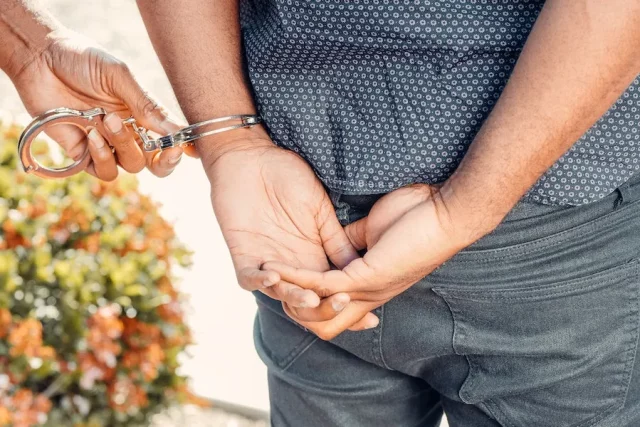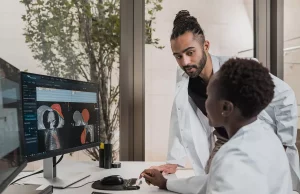When you find yourself on the wrong side of the law, it can be a distressing experience. Regardless of what you are charged with, learning everything there is to know about the criminal justice system is an absolute must. As you begin to work with an accredited defense attorney to build your case, having an understanding of legal proceedings will help the process go smoother.
How Is Criminal Defense Different Than Civil Defense?
As a person looks into legal matters, they will quickly learn that there are two primary forms of law: criminal and civil law. For the majority of people, civil law is the only type that they will deal with over the course of their life. However, criminal law may impact the lives of certain individuals which is why it’s important to cover the difference between the two.
Civil law refers legal matters that are connected to private relations between people or groups, as opposed to criminal, military, or religious matters. Examples of civil law include traffic violations such as running a light or stop sign and personal injury cases. On the other hand, criminal law refers to a system of laws that deal with criminal actions, such as murder, kidnapping, homicide, and more.
Another major difference between criminal law and civil law is how the charge is classified. Civil violations aren’t overly serious and typically don’t have subclassifications. However, criminal actions will either be charged as a misdemeanor, which is less serious, or a felony, which is the most serious form of crime.
How Long Will a Criminal Defense Trial Last?
Depending on the complexity of a crime, the length of time that a criminal defense trial lasts can vary. It’s not abnormal for a misdemeanor charge to never even go to court, however, as both sides will have the option to settle. However, for serious charges such as a felony, it’s not uncommon for the length of the trial to extend for months, or even years.
The Process of a Criminal Defense Trial
Facing a criminal charge is a worrying experience to deal with but learning what the trial will look like can help. Beyond this, find a renowned criminal defense attorney specializing in the type of law that relates to your charge in order to get your charges reduced or dropped:
Step 1: Introducing the Players
First and foremost, understanding who the players are in a trial is the first primary step. In a criminal case, the most important individuals include:
- The prosecution: When it comes to a trial, there are two sides going back and forth: the prosecution and the defense. It is the job of the prosecuting lawyer to prove to the court, beyond a reasonable doubt, that the person being accused of the crime committed it. Prosecutors typically represent the government on behalf of people or organizations.
- The defense lawyer: Criminal defense lawyers represent the person who is being charged with a crime and are responsible for calling witnesses who may prove the defense’s innocence.
- The witnesses: Witnesses are called on both sides in order to present facts that either prove or disprove claims regarding the charge. Both sides will have the opportunity to question the witnesses.
- The jury: A jury of peers is the backbone of the American justice system. Selected randomly, the jury will hear the facts of the case and make a verdict.
- The judge: The judge will oversee the case and bring order to the court. In trials where no jury is present, the judge makes a verdict.
Step 2: Arraignment
Now that you are aware of the players, it’s time to discuss the actual steps involved in a trial. After a charge has been assigned, a person will be arraigned in a court of law. At this preliminary trial, a person is informed what the charges they are facing are, along with their rights. This is also where the person announces what their plea will be for the charge(s).
Step 3: Possible Settlement
After this stage, the two sides will have the opportunity to settle the case without going to trial. If they can agree on a settlement, then the case will be over and a trial will not be necessary. Otherwise, the next stage will be the actual trial.
Step 4: The Trial
The longest part of the criminal justice process is the trial itself. At this stage, the two sides will be allowed opening statements to present an overview of the case, the facts of the case, witnesses for their side, cross-examination of the witnesses, and closing arguments. This process can be as quick as a week or as long as a couple of years depending on the complexity.
Step 5: The Verdict
Finally, the last stage of the criminal justice process in court is the verdict. After hearing all of the facts of a case, the jury will go deliberate amongst themselves. To charge an individual the jury must reach a unanimous decision of guilt. In situations where there is no jury, the judge themselves will hear the case and make a verdict. It’s worth noting that a person can appeal the decision if they are convicted at a later time.
Tips to Follow When Arrested for a Crime
Finding yourself charged with a crime is never a good experience, but it’s important to follow certain pieces of advice when you are arrested:
- Do not resist the officers who have come to arrest you
- Do not get rid of any evidence that may be useful in a case
- Do not speak without your lawyer present
- Do not give any evidence without your lawyer present
- Start thinking about witnesses who may be able to validate your claims
Educate yourself on the legal system today
There are a number of potential crimes that a person may be charged with and the nuances of these crimes can quickly become confusing. However, by understanding how legal proceedings will occur you can better prepare yourself if your case goes to trial. Trust an accredited criminal defense lawyer to help you build your case and prove your innocence to the court.














